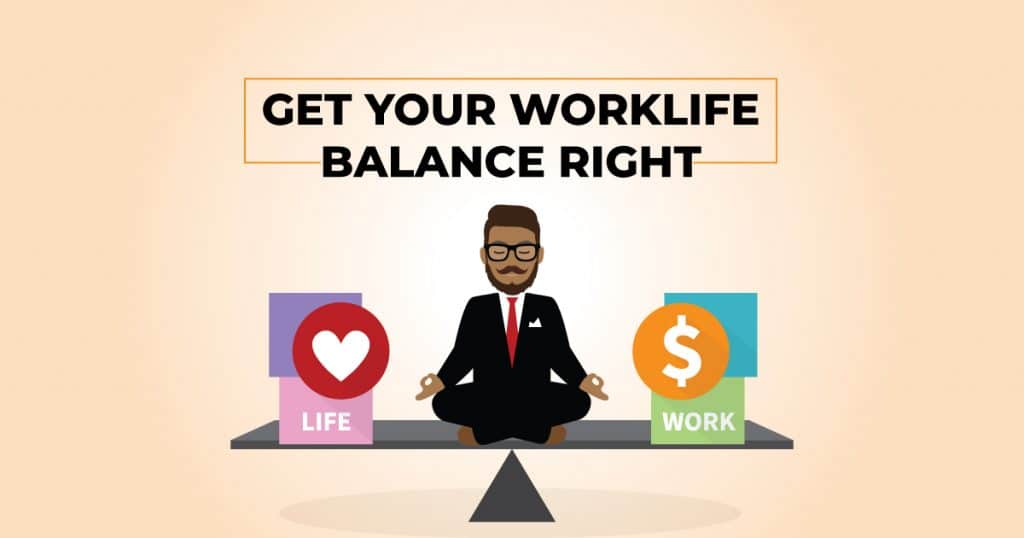How to strike a balance between life and work
Today, being able to balance life at work and outside work is becoming almost an impossibility. This could be blamed on the scarcity of jobs forcing many people in the workforce to dedicate their lives to their work in fear of losing it,as well as technological advancements that allow people to work from anywhere and anytime.
Although dedicating your life to your work in a bid to earn enough income to sustain you may seem the right and logical thing to do, it is very important to dedicate some time to yourself, your family as well as your hobbies outside your work. Work-life balance has very important benefits both to your health and your productivity at work and these include:
- You will be able to be more creative since you have enough time to rejuvenate
- Being more creative will in turn increase your productivity at work
- You will be happier, healthier and less stressed about your work
- You are bound to be more attentive with a balanced life. This means that while at work you will not be distracted and you will pay enough attention to your work that will allow you to perform better since you will be fully concentrated on it
- Work-life balance also contributes to the growth of your relationships both at home and at work. You are able to build and maintain relationships with all the important people in your life which is important in helping you build a strong support system, which you need to succeed
- You will be less affected by burnouts from work stress that could encroach on your personal time
Now that you know the benefits of work-life balance, how do you achieve it? Here are some tips we suggest you could follow:
1.Plan
The most important thing you need to do in order to achieve work-life balance is to plan your time. Using your calendar or diary, note the tasks you have to do in a day or week, ensuring the tasks are balanced between those related to your work and outside of your work.
After writing down the tasks, prioritise them and allocate the appropriate amount of time you think you will take to achieve each of the tasks and ensure that the plan is followed. It is also advisable to allocate some extra time just in case anything else is to come up.
Having a plan in place helps you to organise your tasks better, helps you to complete them in time and helps you recall any tasks you may have forgotten. With a balanced plan in place, there is no doubt you will be able to achieve work-life balance.
2.Do not let tasks overflow
Now that you have a plan in place, ensure that tasks meant for work are performed within the time allocated to them and those tasks meant to be done with your family or outside of work are also kept that way.
It is recommended that while at home you are not replying emails or performing work tasks and while at work, your attention as well, is focused on work and not anything outside of work.
Adopting this will allow you to give full attention where it is due when you are both at work or at home.
3.Have boundaries
If it happens on an extreme that the extra roles are coming in too quickly and beginning to take a toll on your health and personal responsibilities, learn to politely say, ‘No’ to your boss or colleagues that may be piling their work on you.
Set boundaries and avoid being a, ‘yes man’ to everyone, all the time. Know your boundaries, prioritise your tasks and should anything disrupt your plan that is not too urgent, be sure to finish what you had planned to do before you go ahead and do it.
With your boundaries set in place, your colleagues and boss are bound to respect you more and encroach less on your personal life outside of work.
4.Work smart
Success is in working smart and not necessarily hard or working too much. Assess your kind of work and figure out ways you could be able to do it smarter in a less strenuous and more productive way.
Being able to also prioritise your tasks can help you to know where exactly you need to focus which can allow you to learn to take on the more important tasks and leave out the less important ones.
Technological advances and further training in your field can also help you do this effectively.
5.Learn to delegate
Understand that you do not have to do everything on your own. If there is someone that has a similar skill set as you, learn to delegate tasks to them.
The best way to go about this is to prioritise each of your tasks and figure out those you can delegate. Delegating allows you to focus on the more important tasks and helps you avoid being stressed out trying to do everything.
6.Do not strive to be a perfectionist
Some people do not let tasks go as they strive to ensure that they are perfect. In as much as this may seem like a good thing, it could be negative as you may end up spending so much time on detail that is not that relevant and could leave you stressed out instead.
As demands increase, it is very difficult for you to ensure everything is perfect. The best way to go about work is not to strive for perfectionism but excellence as you will often be worn out trying to be perfect.
7.Make time outside of work a priority for yourself as well
Just like your work is a priority, time for yourself outside work should also be a priority as it has a ripple effect on how you will perform your work.
Ensure that you have time for your family, time to meet up with friends, time to take a vacation, to exercise, meditate or simply sleep in.
All this time outside work helps you rejuvenate, be more creative and more productive at work as well as helps you maintain other important relationships outside of work that you need in order to succeed.
8.Unplug
With recent technological and telecommunication advancements, people work more which ends up intruding on their personal time. With such developments, you are bound to get email and phone notifications that interrupt your time off.
To deal with this, one should be resilient enough to either completely put off their laptop or phone or refuse to answer any notifications related to work while at home. Getting into this habit will help you have more uninterrupted time outside of work.
In as much as work is important and puts food on the table, it is also important for you to understand that other aspects of your life outside of work are also important. Make it a point to balance your life and work beginning today!







